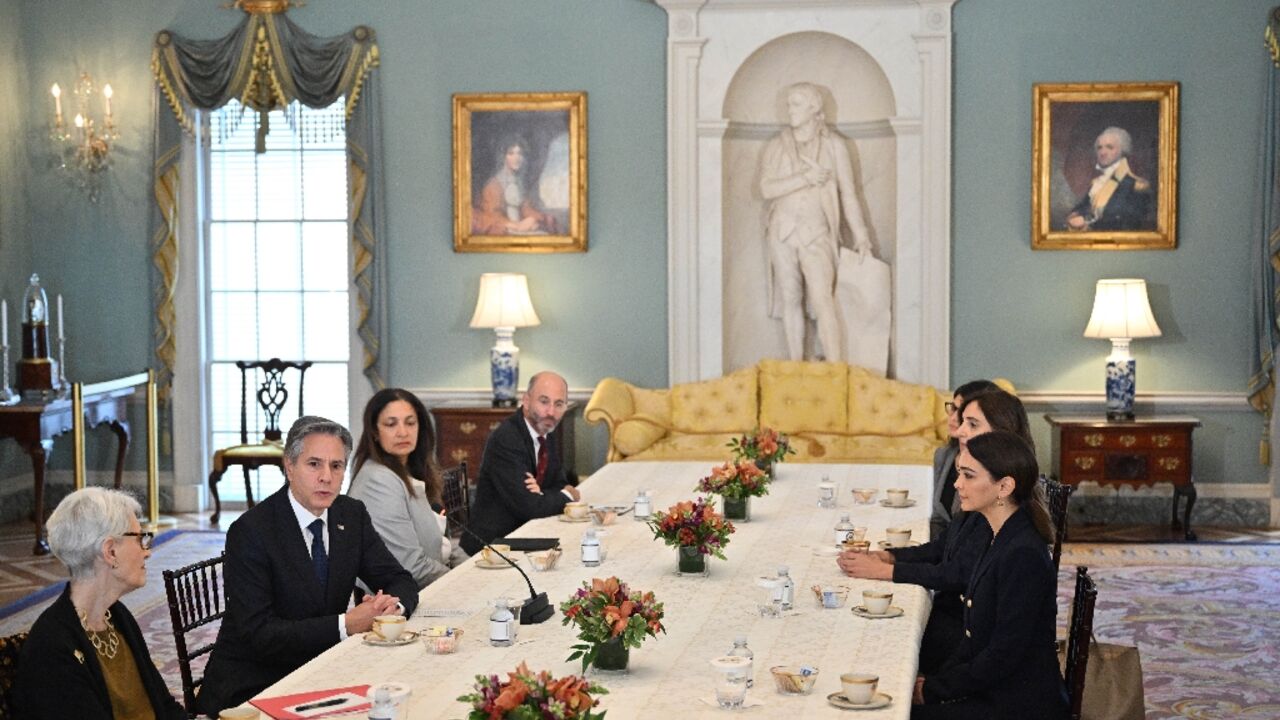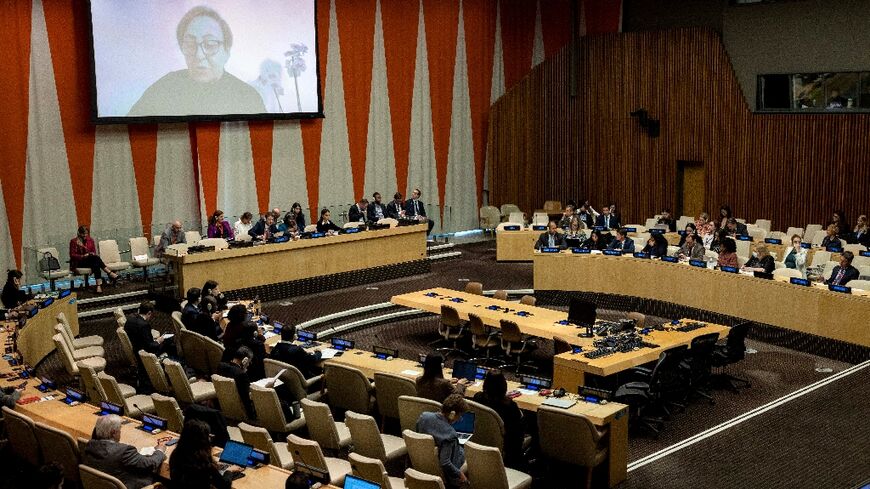Harris, Blinken hail Iran protests in activist meetings

Vice President Kamala Harris and other top US leaders on Friday hailed women leading protests in Iran as they met activists originally from the country whose clerical leadership is waging a crackdown.
Harris, Secretary of State Antony Blinken and National Security Advisor Jake Sullivan each met with Nazanin Boniadi, the Iranian-born actress and human rights advocate.
Harris voiced "support for the brave women and girls leading peaceful protests in Iran to secure equal rights and basic human dignity," the vice president's office said in a statement.
The vice president "emphasized how the courage of these women protestors has inspired her as it has inspired the world."
Blinken earlier led a roundtable to listen to overseas Iranians including Boniadi, known for her role in the sitcom "How I Met Your Mother," as well as writer Roya Hakakian and gender equality activist Sherry Hakimi.
Iran has seen its biggest wave of protests in years after the September 16 death of 22-year-old Mahsa Amini, who was arrested by the notorious morality police.
"In the wake of Mahsa Amini's death and the spontaneous demonstration of outrage that this has produced, I think we are seeing something that is quite remarkable throughout the country, led primarily by women and young people," Blinken said at the start of the meeting.
Blinken was joined by Deputy Secretary of State Wendy Sherman, who has championed women's rights, and Rob Malley, the US pointman on Iran who has led months of talks in a bid to restore a 2015 nuclear accord.
Hakakian said the group urged President Joe Biden's administration to halt the talks, which could lead to an easing of sweeping sanctions on Iran if it returns to compliance with restrictions on its nuclear program.
"Our suggestion unanimously was to stop the nuclear talks until the violence stops. And I think everybody heard us loud and clear," she told National Public Radio after the meeting.
White House spokesman John Kirby said Thursday that while the United States still backed the nuclear deal, it was unlikely that it would be revived "anytime in the near future."
Iranian President Ebrahim Raisi, a hardline cleric, has accused the United States of whipping up the protests to destabilize the Islamic republic.
Blinken said he anticipated similar accusations that his meeting showed the protests were coming from the outside.
"If that's the case, if they genuinely believe that, they fundamentally -- fundamentally -- do not understand their own people," Blinken said of the Iranian leadership.






